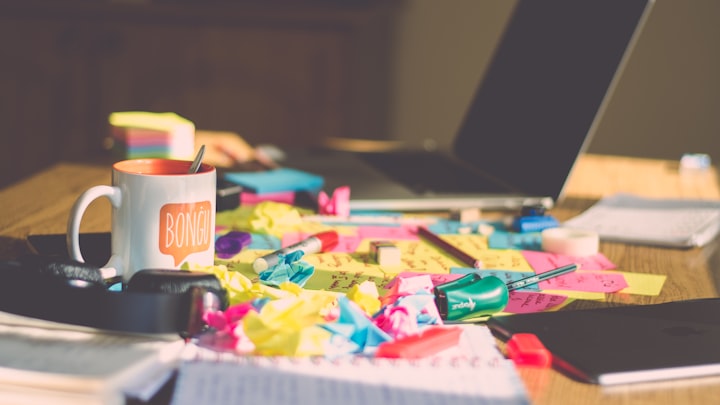Tips For Those Tired Of Multitasking
Multitasking is really the ability to quickly switch from one task to another.

The world overloads us with information and tasks so much that we simply forgot how to concentrate. We check social media a hundred times a day. And we also have such tasks that other people used to solve.
For example, now it is possible to independently book a plane ticket and a hotel room, without a cashier to buy goods in a store. The tasks have become much more, and besides this, I want to be with my family, friends and take up a hobby.
Multitasking is a myth.
However, a long list of tasks and the ability to do multiple things is not as good as it seems. A person cannot be multitasking. For multitasking, we think of the ability to quickly switch from one task to another. And each such switch requires considerable resources, increases stress, and increases feelings of anxiety. Therefore, the less we switch and get distracted by extraneous things, the better.
But what if there are a lot of tasks and you need to somehow cope with it? How not go crazy with a huge to-do list and be effective? Here are some tips.
Work in cycles.
Business requires constant switching between tasks. If you have not yet learned how to delegate and are doing everything yourself — from calls to a water supplier to an interview, then by the evening you are probably squeezed out like a lemon. To avoid unnecessary stress, work in cycles, taking a break in between.
The simplest cycling technique is the Pomodoro technique. You concentrate as much as possible at work for some time and then make sure to take a short break. For example, 45 minutes of work and 15 minutes of rest. This principle of work is effective for working with a large number of tasks, and with one big task.
Change your concentration mode.
Our brain operates in two modes of attention: concentration mode and wandering mode. Concentration mode (central-executive mode) turns on when we are completely immersed in work. We pay maximum attention to our work. In this mode, we work productively, but intensely. With prolonged work at such speeds, we gradually get tired and our efficiency decreases.
To work productively for a long time, you need to periodically switch from the first to the second mode — the “wandering” mode (mind-wandering mode). We are in this mode when we read literature, articles, walk, admire art, meditate. The wandering mode allows you to reboot your brain and relax. Therefore, taking breaks is beneficial for improving work efficiency.
Make big decisions in the morning.
It is better to make all important decisions in the morning when your decision-making resource has not yet been depleted. Oddly enough, but we can really make a limited number of decisions per day. There is a certain threshold, and it doesn’t matter whether we face a difficult choice or an easy one.
In one experiment, a group of people was asked to participate in a survey. Before the survey, they were specifically asked simple questions like: how do you arrange the paper? Blue or black pen for you? What will you drink: tea or coffee? Sugar or Sugar-Free? With milk or lemon?
That is, they were forced to make decisions. And then they handed out poll sheets, where there were questions on important philosophical problems. People coped with the difficulty because they already felt tired. Decision-making resource has been spent.
Therefore, it is better to solve all important issues in the morning, while your head is fresh and you have not had time to spend the entire resource.
Free your head.
Don’t keep everything in your head, use brain expanders — calendars, diaries, lists, notebooks, applications.
Imagine that your concentration is the RAM on your computer. The more programs are open on the computer at the same time, the slower it will work. If you are trying to keep something in your head instead of uploading it to another medium, then you are taking up the amount of memory you need. The more such information, the more difficult it is to concentrate on the current business.
Live in the moment.
How often do you think about household chores and dinner while sitting at work, and think about work at home? This happens all the time. During breakfast, people are holding a fork in one hand and a phone in the other. They walk down the street with gloomy, concentrated faces, tensely thinking about something. We stopped enjoying the present moment.
However, being in the moment is very important. This is the only way to work efficiently and rest well. Then there will be more pleasure from life and from work.
About the Creator
Michail Bukin
Creative Writing Expert and Ambitious Stutterer






Comments
There are no comments for this story
Be the first to respond and start the conversation.